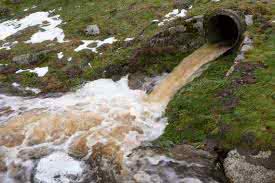ความหมายของคำ discharge ในภาษาไทย
discharge ในภาษาอังกฤษหมายถึงอะไร? มาร่วมค้นหาความหมาย การออกเสียง และวิธีใช้คำนี้อย่างละเอียดกับ Lingoland
discharge
US /dɪsˈtʃɑːrdʒ/
UK /dɪsˈtʃɑːdʒ/

กริยา
1.
ปล่อยตัว, ปลดประจำการ
to allow someone to leave a hospital or prison, or to order someone to leave an organization such as the army or police
ตัวอย่าง:
•
The patient was discharged from the hospital yesterday.
ผู้ป่วยถูกปล่อยตัวจากโรงพยาบาลเมื่อวานนี้
•
He was discharged from the army after five years of service.
เขาถูกปลดประจำการจากกองทัพหลังจากรับราชการห้าปี
2.
3.
ปฏิบัติ, ดำเนินการ
to perform a duty or fulfill an obligation
ตัวอย่าง:
•
He was unable to discharge his duties due to illness.
เขาไม่สามารถปฏิบัติหน้าที่ได้เนื่องจากอาการป่วย
•
The committee must discharge its responsibilities fairly.
คณะกรรมการต้องปฏิบัติหน้าที่ด้วยความยุติธรรม
คำพ้องความหมาย:
คำนาม
1.
การปล่อยตัว, การปลดประจำการ
the action of allowing someone to leave a hospital or prison, or of ordering someone to leave an organization
ตัวอย่าง:
•
He received an honorable discharge from the military.
เขาได้รับการปลดประจำการอย่างสมเกียรติจากกองทัพ
•
The doctor recommended her discharge from the hospital.
แพทย์แนะนำให้เธอออกจากโรงพยาบาล
คำพ้องความหมาย:
2.
การปล่อย, การพ่น
the emission of a substance, especially waste liquid or gas
ตัวอย่าง:
•
The factory's illegal discharge of chemicals caused pollution.
การปล่อยสารเคมีอย่างผิดกฎหมายของโรงงานทำให้เกิดมลพิษ
•
There was a sudden discharge of electricity from the faulty wire.
มีการปล่อยกระแสไฟฟ้าอย่างกะทันหันจากสายไฟที่ชำรุด